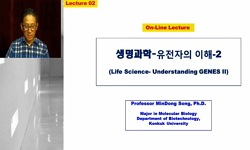아리스토텔레스는『영혼론』에서 생물체의 재생 현상을 영혼의 단일성을 입증해 줄 수 있는 경험적 증거자료로 언급하고 있다. 본 논문에서는 우선 재생 현상에 관한 관찰이 과연 영혼의 ...
http://chineseinput.net/에서 pinyin(병음)방식으로 중국어를 변환할 수 있습니다.
변환된 중국어를 복사하여 사용하시면 됩니다.
- 中文 을 입력하시려면 zhongwen을 입력하시고 space를누르시면됩니다.
- 北京 을 입력하시려면 beijing을 입력하시고 space를 누르시면 됩니다.
https://www.riss.kr/link?id=A100278154
- 저자
- 발행기관
- 학술지명
- 권호사항
-
발행연도
2009
-
작성언어
French
- 주제어
-
KDC
160
-
등재정보
KCI등재
-
자료형태
학술저널
- 발행기관 URL
-
수록면
65-81(17쪽)
- 제공처
-
0
상세조회 -
0
다운로드
부가정보
국문 초록 (Abstract)
아리스토텔레스는『영혼론』에서 생물체의 재생 현상을 영혼의 단일성을 입증해 줄 수 있는 경험적 증거자료로 언급하고 있다. 본 논문에서는 우선 재생 현상에 관한 관찰이 과연 영혼의 단일성이라는 형이상학적 명제를 입증해 줄 수 있는 증거력이 있는지 검토한다. 검토 결과 아리스토텔레스 자신이 믿고 있는 바와 달리 그 증거력은 결정적이지 못하다는 것이 확인된다. 그러나 사실 해당 부분에서 제시된 아리스토텔레스의 논증의 가치는 타당성 여부에 있다기보다는 그의 영혼 개념에 대한 이해를 좀 더 선명히 할 수 있는 중요한 시사를 담고 있다는 데에 있다. 본 논문은 그와 같은 시사에 주목하여 그가 생각한 단일한 영혼은 점과 같은 성격을 지닌 공간적 존재라는 사실을 명확하게 짚어내고자 한다. 그러나 물론 그 점은 공간상에 일정한 위치를 보유한 따라서 좌표상의 단일한 위치확정이 가능한 기하학점이 아니기 때문에 차라리 형이상학적 성격의 점이라고 할 수 있는 것이다. 또 나아가 그와 같은 성격 이외의 다른 여러 특성은 형이상학적 논증을 통해서보다는 실제의 생물학적 연구를 통해 밝혀질 수 있는 것이고, 영혼 개념 자체는 그 경우 생물학 연구의 범위와 방향을 결정해주는 즉 생물학의 학문적 단일성을 보장해주는 입법적 원리의 역할을 하는 것으로 보아야 한다는 해석을 제시한다.
다국어 초록 (Multilingual Abstract)
Aristotle mentions the regeneration of organism as an important piece of empirical evidence supporting his thesis about the unity of soul in his De Anima. This paper is an attempt to examine the question of how successful the observation of the biolog...
Aristotle mentions the regeneration of organism as an important piece of empirical evidence supporting his thesis about the unity of soul in his De Anima. This paper is an attempt to examine the question of how successful the observation of the biological phenomenon of regeneration can provide a solid base for his argument concerning the unity of soul. The examination shows that the metaphysical thesis about the unity of soul cannot be sufficiently supported by the observation of such an empirical fact as the regeneration. However, the value of Aristotle’s argument in the passages under discussion does not lie in its validity; it is to be sought rather in its contribution to clarify an important aspect of the soul as is conceived by Aristotle. Indeed, it turns out that according to his conception of soul it is a spatial entity in the sense that it is connected to a body located in the space, but the essential character of it should be taken as that of a point, - not that of a geometrical point, but rather that of a kind of metaphysical point in that it has not a fixed and determinate place in space and accordingly cannot be captured in a geometrical system of coordinates. Besides that rather metaphysical character of soul there are surely many other properties of soul that should be treated as subject of scientific investigation. As a further result of the examination it should be emphasized that the concept of the unity of soul functions as a kind of regulative principle for such empirical investigation; in other words, the soul itself is not the object of scientific research, but a kind of transcendental idea that guarantees the unity and accordingly the possibility of biology as science.
동일학술지(권/호) 다른 논문
-
War and Peace in the Iliad and the Aeneid
- 韓國西洋古典學會
- Ogawa Masahiro
- 2009
- KCI등재
-
An Inquiry on the Two Laws of the Plebeian Institutions in the early Roman Republic
- 韓國西洋古典學會
- Kim, Kyunghyun
- 2009
- KCI등재
-
Practical Wisdom and Knowledge of the End in Aristotle’s Ethics
- 韓國西洋古典學會
- Chun, Hunsang
- 2009
- KCI등재





 KCI
KCI DBpia
DBpia






